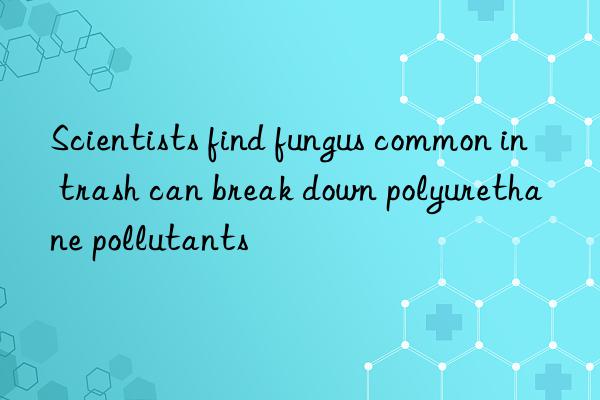
A Mexican research institute has found that fungi commonly found in trash can break down Polyurethane contaminants that were originally thought to be difficult to recycle.
Herminia Loza-Tavera, a professor of chemistry at the National Autonomous University of Mexico (UNAM), said it took more than 10 years to develop the technology, which has now been patented.
According to project leader Loza-Tavera, her team not only identified the best decomposing fungi, but also isolated the key enzymes that catalyze the decomposition. These microbes can break down more than 50 percent of mattress foam, with 20 percent breaking down significantly better than other methods used in labs around the world.
UNAM research labs have worked hard to convert or alter microorganisms, either metabolically or enzymatically, to break down polyurethane in mattress foam, shoe soles and varnishes.
She added that the technology is still in its infancy and more human and financial resources are still needed.
According to the data collected by the team, the global production of polyurethane in 2013 was nearly 300 million tons, which made the disposal of polluting chemicals a huge challenge.
The team said it will continue to study these fungi to find more new ways to speed up the decomposition process.



 微信扫一扫打赏
微信扫一扫打赏
